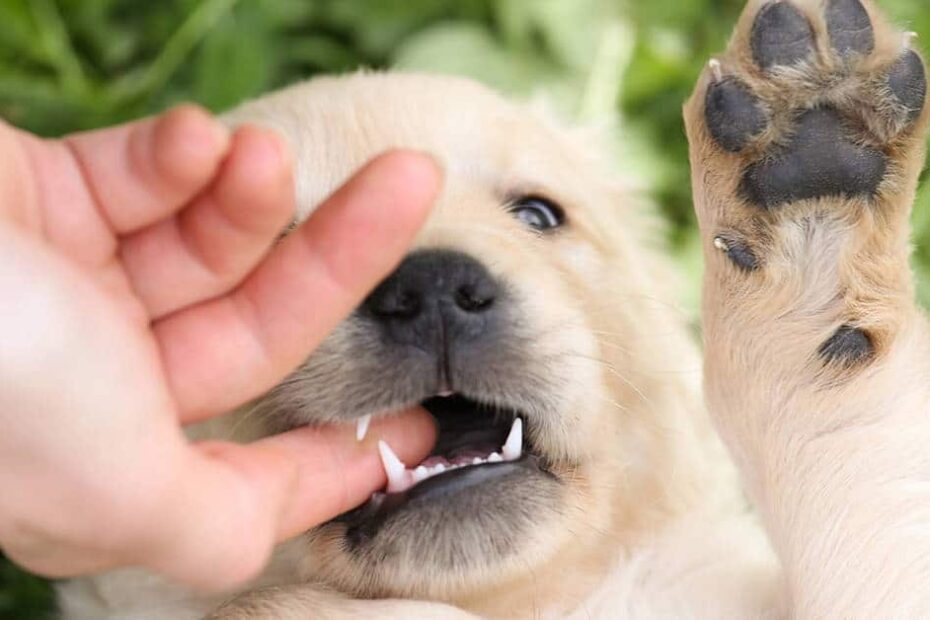Welcoming a new puppy into your home is an exciting and joyful experience. Their playful energy, adorable faces, and endless love are hard to resist. However, there’s one common behavior that many new puppy owners struggle with—nipping. Puppies naturally explore the world with their mouths, and nipping is a part of their normal development. But while it’s completely normal, it can also be a bit overwhelming if you don’t know how to handle it.
Here’s a guide on how to deal with puppy nipping when you bring your new fur baby home.
1. Understand Why Puppies Nip
Before jumping into solutions, it’s important to understand why puppies nip in the first place. Puppies are just like babies in many ways. Their mouths are how they explore the world, play, and learn about their environment. Nipping is a part of their teething process, which helps them relieve discomfort as their adult teeth come in. Additionally, they often nip as a way to engage in play or get attention.
2. Redirect Their Attention
Puppies often nip because they are excited, curious, or simply want to engage with you. When your puppy begins to nip, redirect their attention to something more appropriate. Offer them a chew toy or a tug rope. This gives your puppy a constructive outlet for their energy and helps them learn that biting toys is acceptable, but biting people is not.
Tip: Always keep a variety of chew toys available and try to make them more interesting by rotating them regularly. This keeps your puppy engaged and distracted from nibbling on your hands or clothes.
3. Use Positive Reinforcement
When your puppy stops nipping and focuses on their toy or play activity, make sure to praise them immediately. Positive reinforcement goes a long way in teaching your puppy what behavior is acceptable. Offering treats, verbal praise, or gentle petting after good behavior helps reinforce the right actions.
On the flip side, when your puppy nips, make sure to stop interacting immediately. This teaches them that nipping leads to the loss of playtime or attention. Consistency is key here—always respond the same way, so your puppy can connect their actions to your reactions.
4. Time-Outs for Overzealous Nipping
If your puppy’s nipping becomes too intense or frequent, you might need to give them a time-out. This doesn’t mean punishment, but rather a short break from play to help them calm down. If your puppy is nipping and you’re not able to redirect their behavior, calmly remove yourself from the situation. Sit quietly for 30 seconds to a minute and avoid any interaction until your puppy has calmed down. This teaches them that nipping will result in the end of fun.
5. Teach Bite Inhibition
Bite inhibition is the ability of a puppy to control the force of their bite. Puppies learn bite inhibition from their littermates and mother when they play together. If a puppy bites too hard, their littermates will yelp and stop playing, teaching them that a hard bite results in no play. You can simulate this same process when your puppy nips you by letting out a high-pitched “Ouch!” or “No!” in a way that mimics a littermate’s yelp.
After you make the sound, stop the play session for a moment. This gives your puppy the message that biting too hard has consequences, and it teaches them to be gentler when interacting with people.
6. Be Patient and Consistent
Remember, puppies are learning everything for the first time. It will take time and consistency to break the habit of nipping. Be patient with your puppy and avoid punishing them physically or harshly. Positive reinforcement and gentle redirection are far more effective methods for teaching your puppy the right way to behave.
7. Provide Plenty of Exercise and Mental Stimulation
Sometimes puppies nip out of boredom or excess energy. A tired puppy is a less likely nipper. Make sure your puppy is getting enough physical exercise and mental stimulation throughout the day. Regular walks, playtime, and puzzle toys will help tire them out and reduce the frequency of nipping.
8. Seek Professional Help if Needed
If despite your best efforts, your puppy’s nipping seems to be getting worse or if you’re unsure how to manage it, don’t hesitate to reach out to a professional dog trainer or behaviorist. They can offer guidance tailored to your puppy’s specific needs and help you address any underlying behavioral issues.
Final Thoughts
Puppy nipping is a completely normal part of the learning process, but with time, patience, and consistency, it’s a behavior that can be curbed. By redirecting their attention, reinforcing good behaviour, and teaching bite inhibition, you can help your puppy learn how to interact with you in a fun, non-biting way. And as your puppy matures, you’ll both enjoy a bond built on trust and understanding.
If you’re interested in bringing a playful, affectionate puppy into your life, check out our available puppies! We’d love to help you find your perfect match.
Stay tuned to our blog for more helpful puppy care tips, training advice, and information on puppy breeds!
